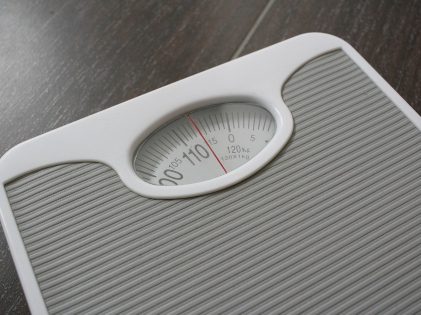200,000 out of approximately 805,000 people in the United States who suffer from a heart attack every year have already gone through a cardiac attack previously. Heart attacks, more than once, are usually caused by some risk factors, a majority of which can be managed as well as reduced. These risk factors can be lessened by bringing changes to one’s lifestyle. When these risk factors are lowered, the chances of suffering from another heart attack become less.
If you want to make those changes in your lifestyle, you need to set SMART goals. S stands for Specific, M for Measurable, A for Attainable, R for Realistic, T for Time-Oriented. Below is a list of changes you can introduce in your daily life to protect your heart. Go through them and take the first step towards leading a better life.
Improve Your Food Game
 If you want to avoid cardiovascular diseases, the first thing you need to do is make a healthy eating plan. Start with tracking the number of calories you are consuming in a day. Find out how many calories you need to consume either to maintain or lose some weight. You need to stick to that daily.
If you want to avoid cardiovascular diseases, the first thing you need to do is make a healthy eating plan. Start with tracking the number of calories you are consuming in a day. Find out how many calories you need to consume either to maintain or lose some weight. You need to stick to that daily.
Refrain from consuming foods that contain as many calories and very little amount of nutrients as possible. Limit the intake of red meat, sugar-sweetened drinks, sweets, sodium, trans fat, and saturated fat. Bring down the amount or just throw out processed foods from your eating plan. They are loaded with sodium and sugar. If you consume alcohol, drink moderately. Include more fruits, green vegetables, lean proteins, whole grains, as well as healthy fats and oils in your health plan. Also add avocados, berries, fatty fish, nuts, seeds, and other foods that are healthy for your heart.
Focus on More Movement
Cardiovascular exercise can work like magic. Not only does it make your heart stronger, but it also brings down your cholesterol levels and blood pressure. Aside from that, cardiovascular exercise can work as a stress reliever and enhance your mood. According to the American Heart Association minimum of 150 minutes of moderate exercise every week or at least 75 minutes of vigorous exercise in a week, or both are good for your heart.
You can walk, run, ride a bike, swim, or do some basic household chores. All these can improve the health of your heart. As a beginner, you can follow cardio fitness plans. However, before you start, make sure that you consult your doctor and take their advice.
The Mind-Body Connection is Important
 Whatever you do or whichever diet you follow, the key thing is the mind and body connection. If you develop a positive outlook about the basic treatment you are required to go through after a heart attack or usher in some changes in your lifestyle, this is the basic thing you need to do.
Whatever you do or whichever diet you follow, the key thing is the mind and body connection. If you develop a positive outlook about the basic treatment you are required to go through after a heart attack or usher in some changes in your lifestyle, this is the basic thing you need to do.
Post heart attack, going through various emotions, and experiencing anxiety and depression is quite normal. These emotions can prove to be a hurdle when you want to implement as well as maintain the good habits that are beneficial for your heart’s health. This is why discussing and addressing mental health concerns with the help of your doctor becomes essential.
Kick the Butt
Smoking is a habit that’s not all good for cardiovascular health. It can affect the proper functioning of your heart and damage your blood vessels. It stops oxygen-rich blood from reaching your organs and other parts of your body. Smoking can lead to heart disease, which eventually causes a heart attack. If you smoke, do think of quitting this habit. Your doctor can help you kick the butt for good. If someone from your family or friends has this habit, refrain from smoking passively, i.e. taking in secondhand smoke.
Maintain Healthy Body Weight
 If you have bodyweight on the higher side, it’s a burden on your heart as it has to work harder. That leads to heart disease. If you have high cholesterol, high blood pressure, or high levels of blood sugar, you will be prone to a heart attack. Modify your diet and include exercise in your daily routine. That will help you maintain your body weight and cut down the risk of having a heart attack.
If you have bodyweight on the higher side, it’s a burden on your heart as it has to work harder. That leads to heart disease. If you have high cholesterol, high blood pressure, or high levels of blood sugar, you will be prone to a heart attack. Modify your diet and include exercise in your daily routine. That will help you maintain your body weight and cut down the risk of having a heart attack.
You can also prevent a heart attack by keeping a track of your cholesterol and blood pressure levels regularly.
